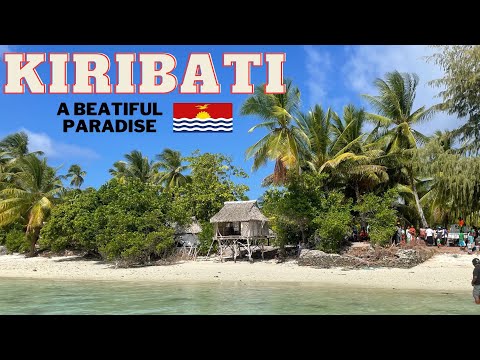
Nestled in the central Pacific Ocean, Kiribati remains one of the world’s least visited countries, making it a pristine and nearly untouched paradise for adventurous travelers. Comprising 33 atolls and reef islands spread out over a vast area, Kiribati offers a unique blend of breathtaking natural beauty, rich cultural heritage, and a genuinely welcoming atmosphere that is hard to find in more tourist-trodden destinations.
#### A Journey to Remote Beauty
Getting to Kiribati is an adventure in itself. Flights are limited, often requiring careful planning and extended travel itineraries. However, the effort to reach this remote destination is rewarded with scenes of unparalleled natural splendor. The islands are famous for their vibrant coral reefs, diverse marine life, and crystal-clear waters making them ideal for snorkeling and diving enthusiasts who can explore the underwater landscapes largely free from human interference.
#### The Heartbeat of Culture
The culture of Kiribati is deeply rooted in its seafaring heritage with community and family ties holding significant importance. Traditional music and dance play a crucial role in daily life and ceremonial occasions. Visitors might have the chance to witness the mesmerizing performances of the Te Buki dance or listen to folk songs that recount ancient myths or vital historical events.
One cannot discuss Kiribati without mentioning its distinct maneabas – communal meeting houses found on each island where gatherings, ceremonies, and daily interactions occur. These structures not only serve social functions but are central to governance on the islands as well.
#### Climate Challenges: A Fight for Survival
Kiribati’s geographical location makes it one of the most vulnerable countries to climate change effects due to rising sea levels threatening its very existence. This has led to innovative adaptive strategies like coastal strengthening projects and relocations plans for its population. Visitors have a unique opportunity not only to enjoy incredible beauty but also witness firsthand the resilience of its people coping with environmental challenges.
#### Sustainable Tourism: A Guiding Principle
Given its vulnerability to environmental changes and limited resources, sustainable tourism is encouraged in Kiribatians’ efforts towards preserving their home while sharing it with outsiders. Tourists are urged to respect local customs (including modest dress codes), support local businesses by purchasing local products like handicrafts made from coconut shells or pandanus leaves.
#### Unforgettable Experiences Await
For those who make their way to these distant shores, unforgettable experiences await:
– **Lagoon adventures**: Tarawa’s vast lagoon offers opportunities for fishing or just enjoying tranquil boat rides.
– **Birdwatching**: The Fregata bird sanctuaries on some atolls provide shelter for thousands of sea birds offering extraordinary birdwatching chances.
– **Island hopping**: With dozens of islands scattered over 3.5 million square kilometers of ocean territory, chartering boats for island-hopping excursions reveals diversity between individual islands from uninhabited sandy cays to bustling local communities.
– **Historical Sites**: Don’t miss relics from World War II scattered across several islands offering insights into significant historical events here.
### Preserving Paradise While Welcoming The World
Kiribatis’ remote location combined with its fragile environment requires responsible travel habits. Visitors should strive not only for personal enrichment but also contribute positively by engaging respectfully with local communities thereby ensuring that this paradise remains vibrant both culturally and naturally for future generations.
As one of the world’s least visited places – not because it lacks anything but merely due to its remote positioning – Kiribati stands as a testament that true paradise still exists on Earth; unspoiled beauty paired with deep cultural roots make every moment spent here truly transcendent.
